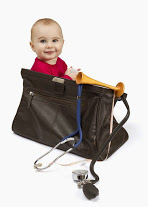 Having delivered both of our babies at home, I have a special place in my heart for midwives. We were so blessed to be served by Marilee Pinkleton of TLC Birth while we lived in Northern Virginia. What a beautiful gift it is to have a midwife at your side during such a defining moment in your life. October 5th-11th is National Midwifery Week. Created by ACNM to celebrate and recognize midwives and midwife-led care. I believe everyone needs to know how much #MidwivesMakeaDifference to women and families! Our midwife came to our home for each prenatal visit, bringing with her a simple bag of tools to check on both me and the baby. Each visit was such a relaxing hour where the trust I would need in myself and in her grew every time we met. When I think of standard prenatal care it saddens me to know this same kind of trust isn’t always being built. The mother is faced with many tests, some invasive and all stress inducing. The World Health Organization ranks the United States as 24th (last) among all industrialized nations in infant mortality and low birth weight. The medical system in the United States is considered to be the most highly advanced in the world. We spend more on birth than any other country in the world. We expect this technology to improve our lives and solve our problems. We are led to believe this technology alone leads to improved outcomes. This is not always the case. In countries with the healthiest, happiest and best supported mothers it is midwives managing normal births. Obstetricians only take care of high-risk mothers.
Having delivered both of our babies at home, I have a special place in my heart for midwives. We were so blessed to be served by Marilee Pinkleton of TLC Birth while we lived in Northern Virginia. What a beautiful gift it is to have a midwife at your side during such a defining moment in your life. October 5th-11th is National Midwifery Week. Created by ACNM to celebrate and recognize midwives and midwife-led care. I believe everyone needs to know how much #MidwivesMakeaDifference to women and families! Our midwife came to our home for each prenatal visit, bringing with her a simple bag of tools to check on both me and the baby. Each visit was such a relaxing hour where the trust I would need in myself and in her grew every time we met. When I think of standard prenatal care it saddens me to know this same kind of trust isn’t always being built. The mother is faced with many tests, some invasive and all stress inducing. The World Health Organization ranks the United States as 24th (last) among all industrialized nations in infant mortality and low birth weight. The medical system in the United States is considered to be the most highly advanced in the world. We spend more on birth than any other country in the world. We expect this technology to improve our lives and solve our problems. We are led to believe this technology alone leads to improved outcomes. This is not always the case. In countries with the healthiest, happiest and best supported mothers it is midwives managing normal births. Obstetricians only take care of high-risk mothers.
Midwives are the experts in normal physiologic birth. Midwifery is based on the idea that most pregnancies, labors, and births are normal biological processes resulting in healthy outcomes for both mothers and babies. Midwifery concentrates on optimizing the health and wellness of a woman and her baby, identifying and managing medical problems early on, and attending to the emotional, social, and spiritual needs of both pregnancy and birth. They understand a woman needs to move around during labor. Walking, squatting, and swaying allow the mother to choose the best position to manage pain for herself. Guiding her along, never forcing. Eating and drinking during labor provide critical energy for the final stage. Most importantly treating each woman as an individual rather than a statistic. Due dates are not stuck to rigidly. Starting, stopping, and slowing down during labor are all allowed as part of the natural process. Midwives are trained to be vigilant in identifying women with serious complications. Medical expertise and interventions are sought when necessary.
Choosing a pregnancy and birth provider is in your hands. Do all the research you can about a group or individual to fully understand how they practice. If their ideas don’t match up with yours, or you have a bad gut feeling when meeting them, move on. If you have suffered a traumatic birth consider changing to a new provider. VBAC can be a healing experience for many who have had an unplanned C-Section. Most areas don’t promote midwifery despite evidence in numerous studies. A 2013 Cochrane systematic review comparing midwife-led to physician-led models of care found that women attended by midwives were less likely to have an episiotomy or instrumental birth, less likely to have a preterm birth or loss of the fetus before 24 weeks gestation, and more likely to have a spontaneous vaginal birth. The review concluded, “Midwife-led continuity of care was associated with several benefits for mothers and babies, and had no identified adverse effects compared with models of medical-led care and shared care.”
Midwife means “with-woman.” You take the time to plan so many aspects of your babies future. Plan for the birth of your dreams- choose a midwife.



